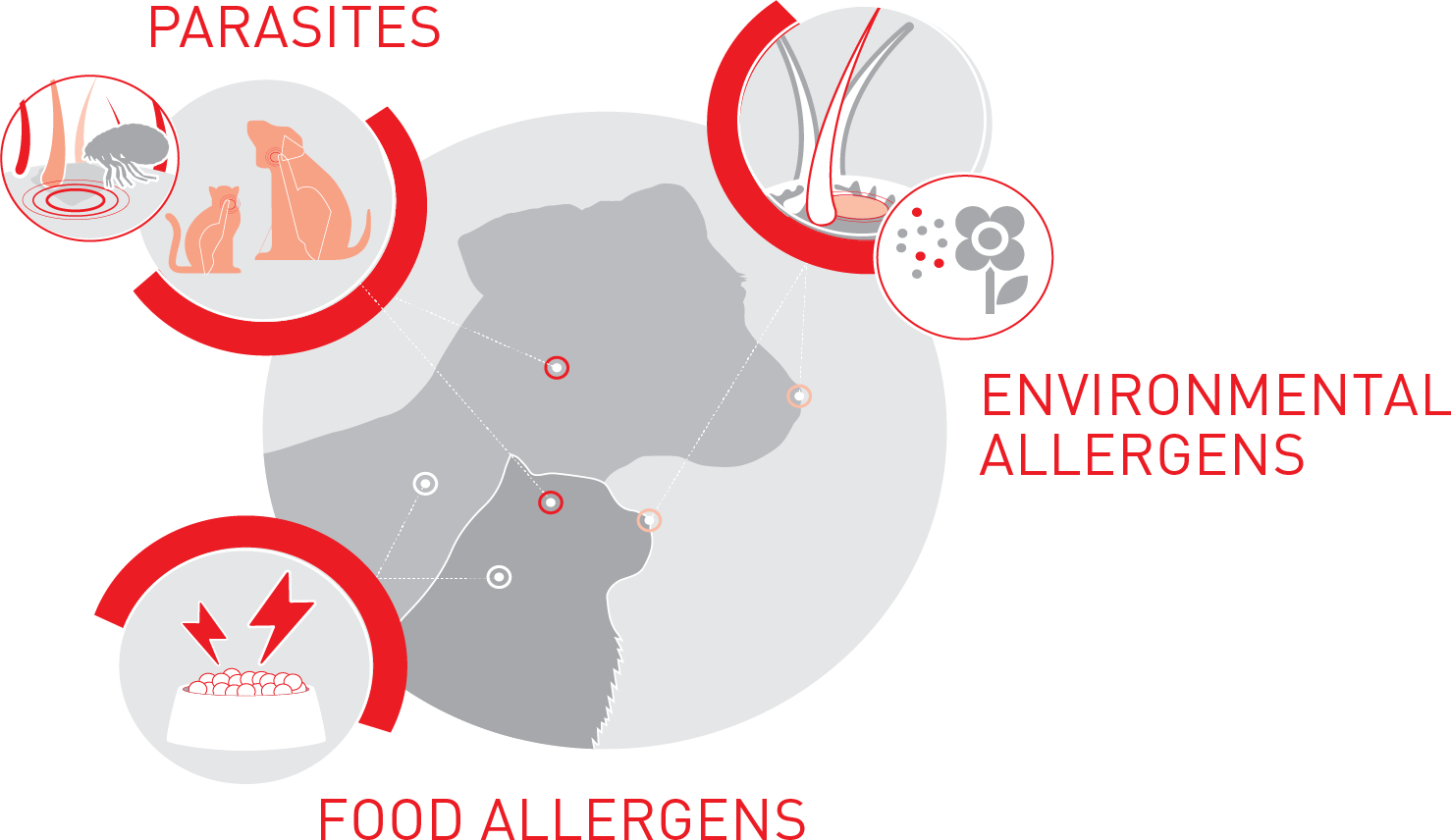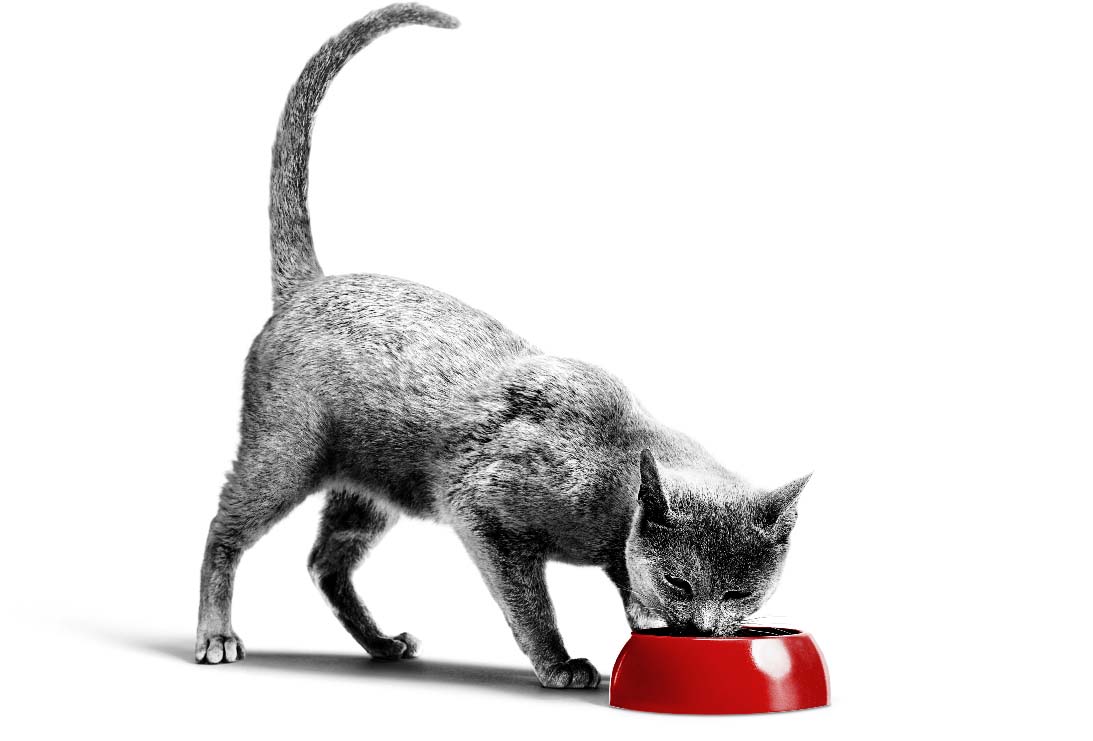
DERMATOLOGICAL ISSUES ARE THE #2 REASON FOR VET VISITS AT 18% OF TOTAL VISITS(1).
IN AUSTRALIA, OVER TWO MILLION PETS SUFFER FROM DERMATOLOGICAL ISSUES(2).

(1)-Hill PB, Lo A, Eden CAN, et al. Survey of the prevalence, diagnosis and treatment of dermatological conditions in small animals in general practice. Vet Rec 2006; 158:533-539. Euromonitor pet population report & internal CMI Quant study on 14 Countries, n: 8547 pet owners, *Data from Internal CMI Quant study on 14 Countries, n: 8547 pet owners. (2)-Hill PB, Lo A, Eden CAN, et al. Survey of the prevalence, diagnosis and treatment of dermatological conditions in small animals in general practice. Vet Rec 2006; 158:533-539. Euromonitor pet population report & internal CMI Quant study on 14 Countries, n: 8547 pet owners
See some of the sources of skin issues in cats and dogs:

External parasites such as fleas, ticks or mites can cause skin reactions like itching and hair loss.
Pets, just like humans, can react to environmental allergens such as pollen or dust. These allergens can cause skin redness, scratching, rashes, and chronic otitis.
In the case of food allergy, the immune system mistakes normal, large dietary proteins as harmful substances and reacts against them, triggering a food allergy. The allergic reaction may result in symptoms such as itching, skin inflammation, loose stools or vomiting.

Adverse food reaction (AFR) is an important differential in non-seasonal pruritic skin and ear diseases in dogs and cats. AFR encompasses both immunologic (food allergy) and non-immunologic (food intolerance), although the distinction is not always clear.
What are the known foods to cause AFR?
The most commonly implicated food or food ingredients to cause adverse food reactions in dogs and cats are beef, dairy, chicken, and fish. Food preservatives and colourings are often incriminated however there is little data to support these claims.

We've been featured in the latest edition of Vet Practice Magazine.
Written by Dr. Mina Cassimatis
BVSc (Hons) MVS, Scientific Services Veterinarian Manager ANZ
Dietary elimination trials are one of the longest diagnostic assessments we undertake as veterinarians. Furthermore, success relies heavily on our clients to remain strictly compliant with the feeding practice we recommend for a period of 8-12 weeks, and for the pets to also accept the change to their daily feeding routine.


|
HYDROLYSED PROTEINHydrolysed protein with low molecular weight to ensure the food is hypoallergenic. |

|
SKIN BARRIERFormulated to help support the skin's natural protective barrier for optimal skin health. |

|
SPECIFICALLY FORMULATED FOR SMALL DOGSSpecially adapted benefits to meet digestive, dental and urinary sensitivities of small dogs and suitable for their small jaws. |

|

|
Book a training session with your Royal Canin representative now. If you're not sure who your sales representative is, email [email protected] or call 1800 622 969